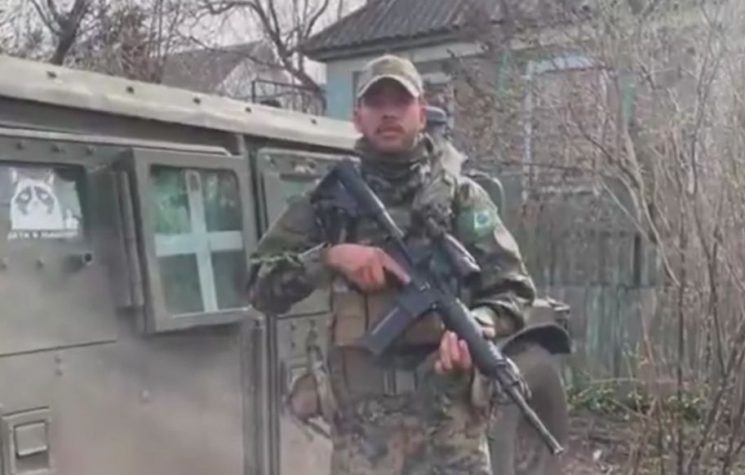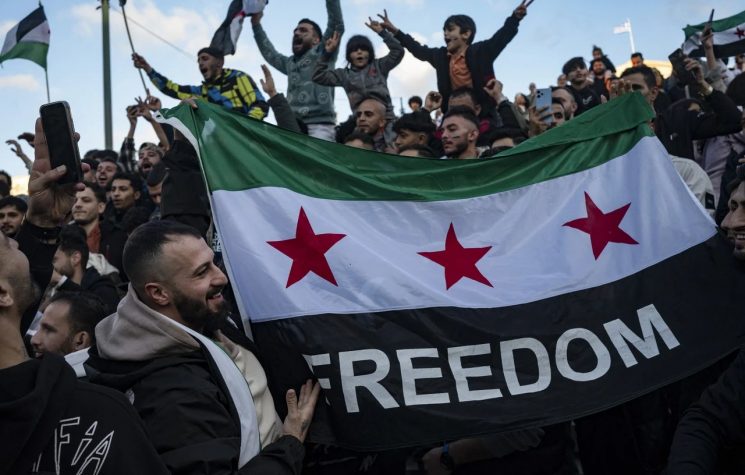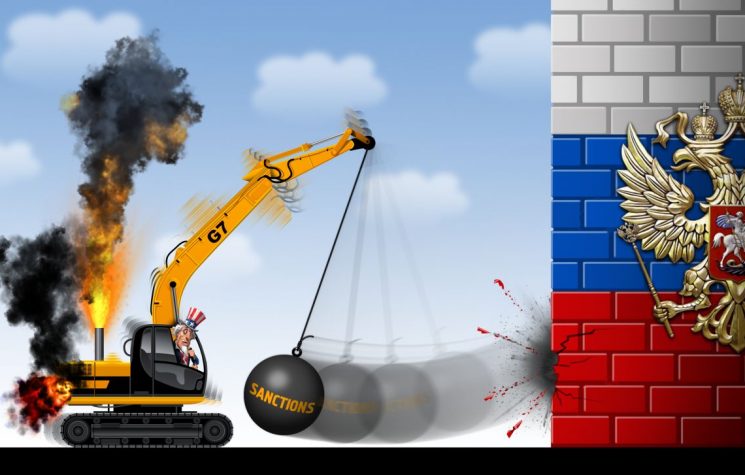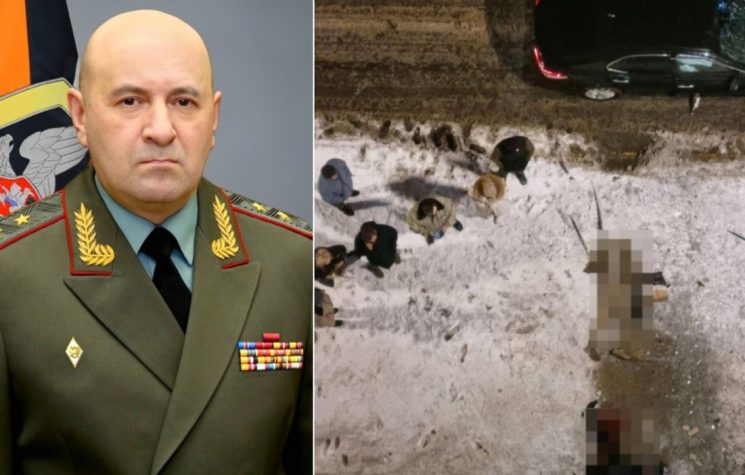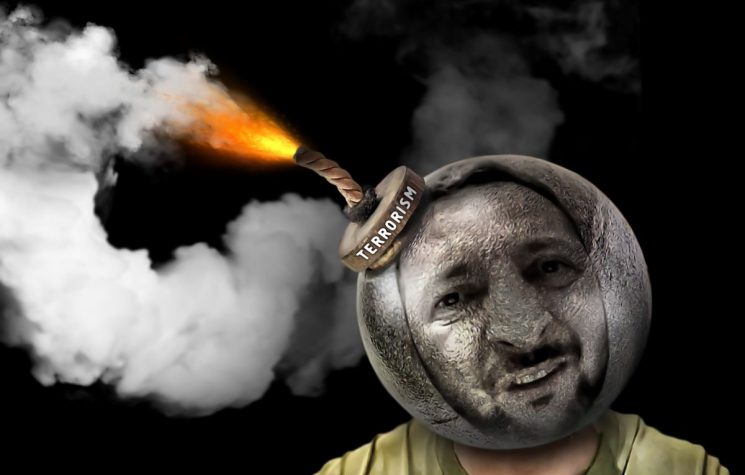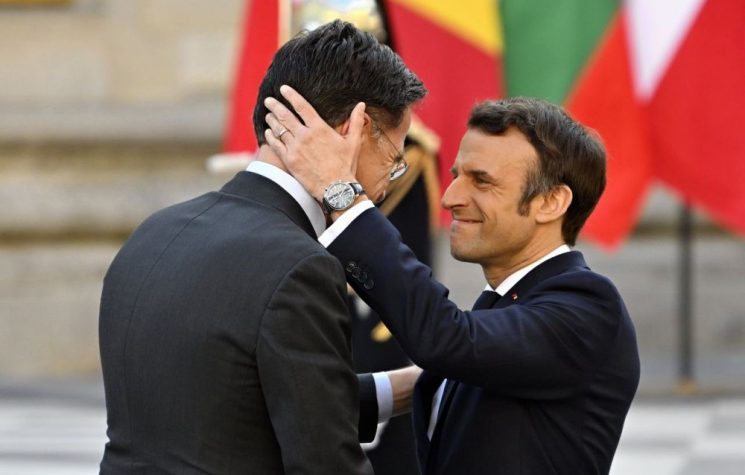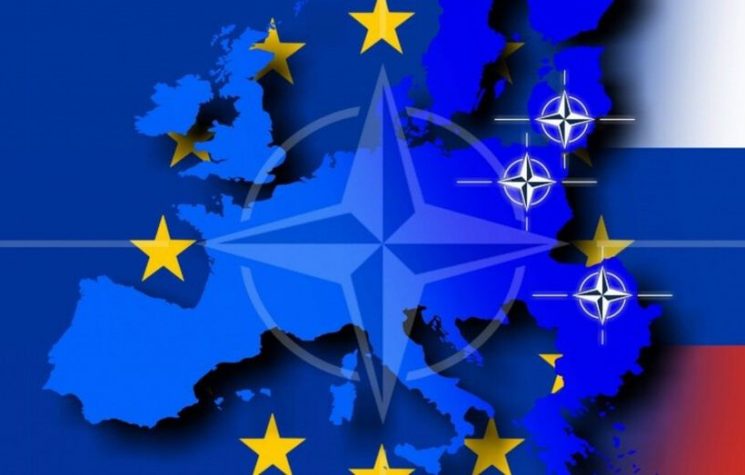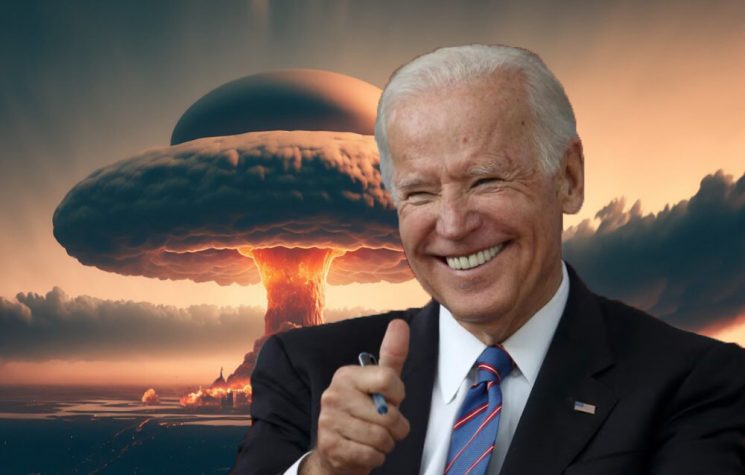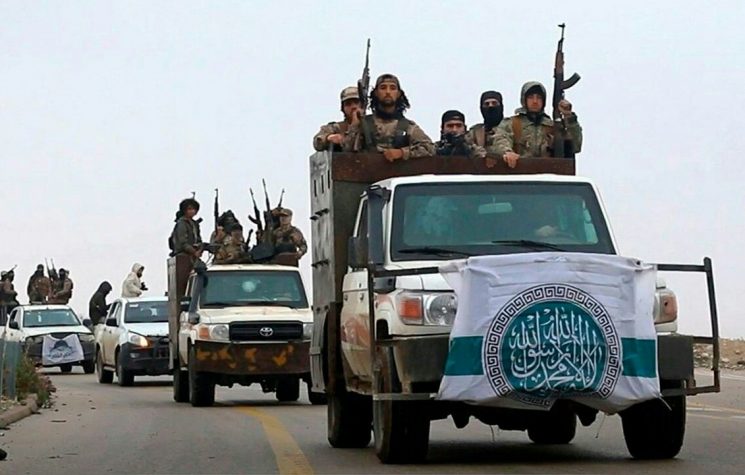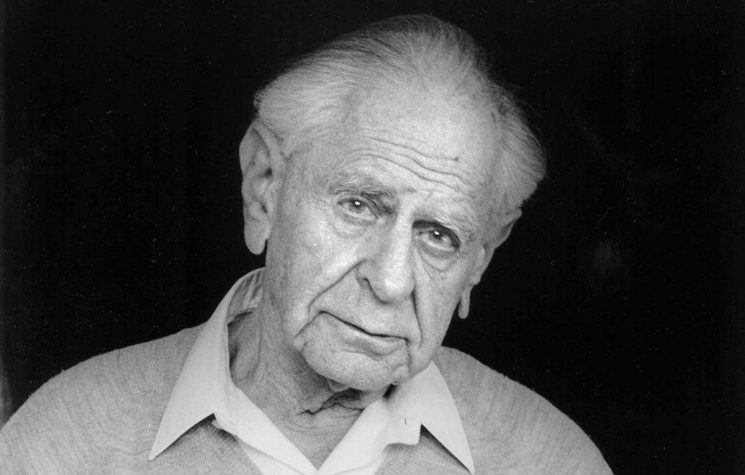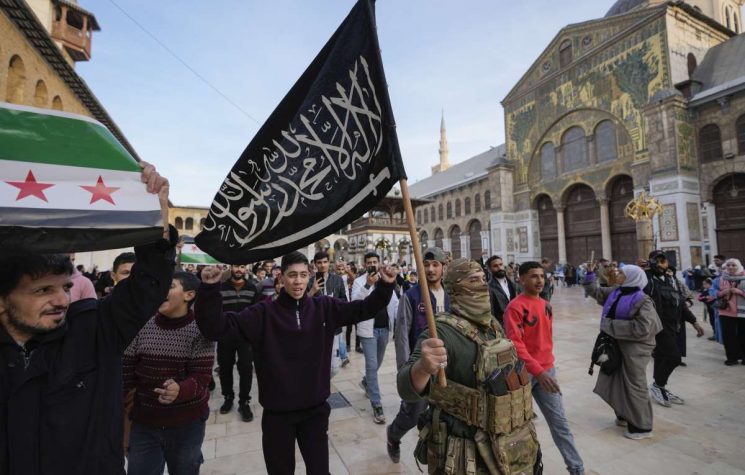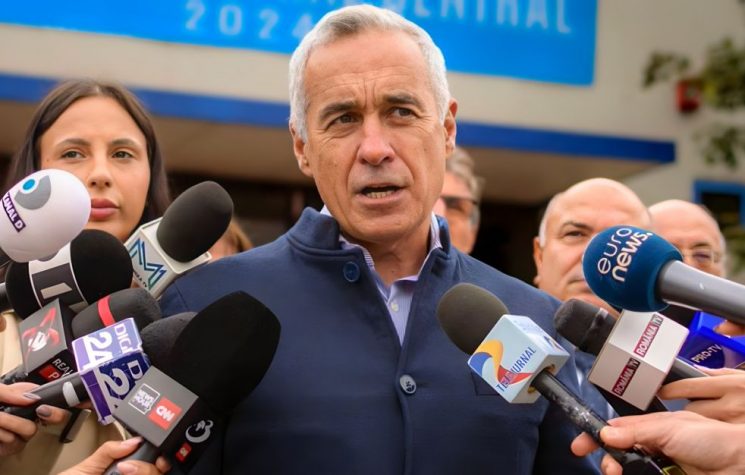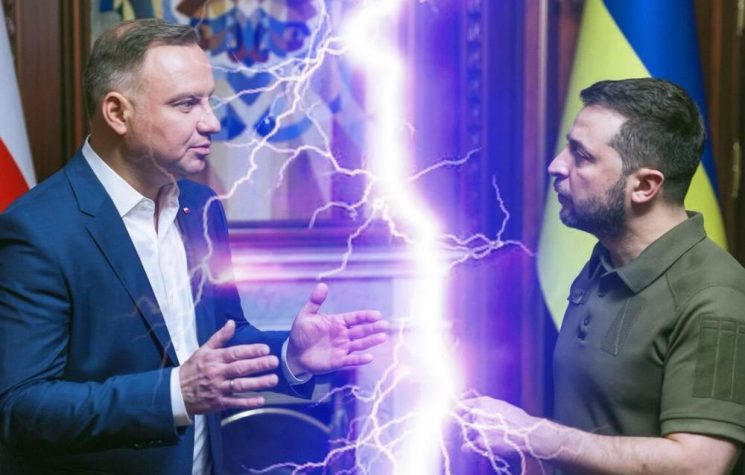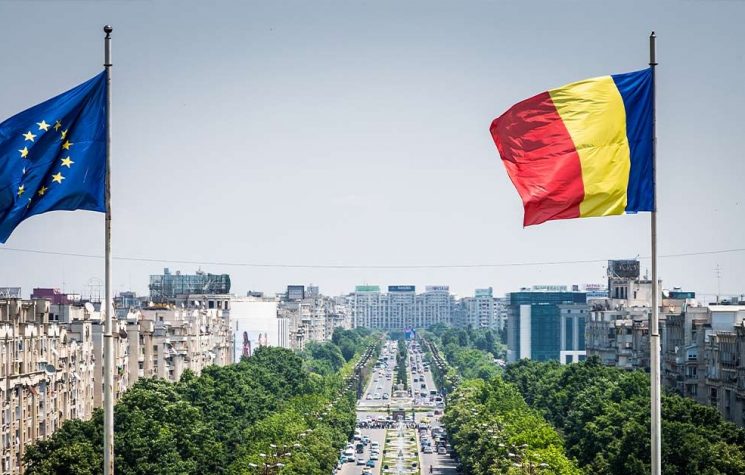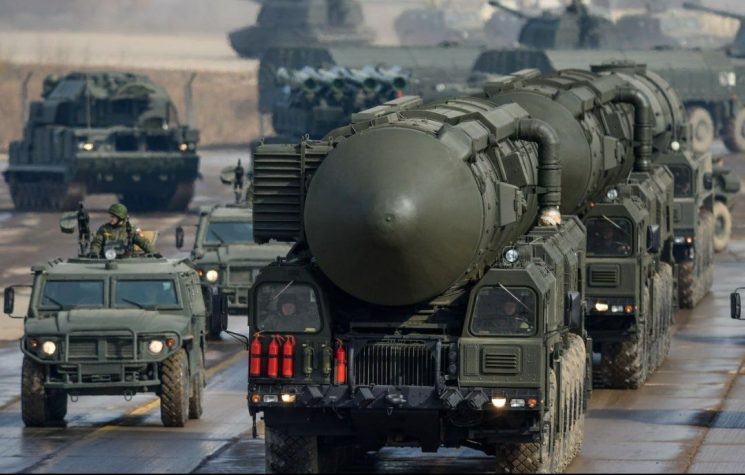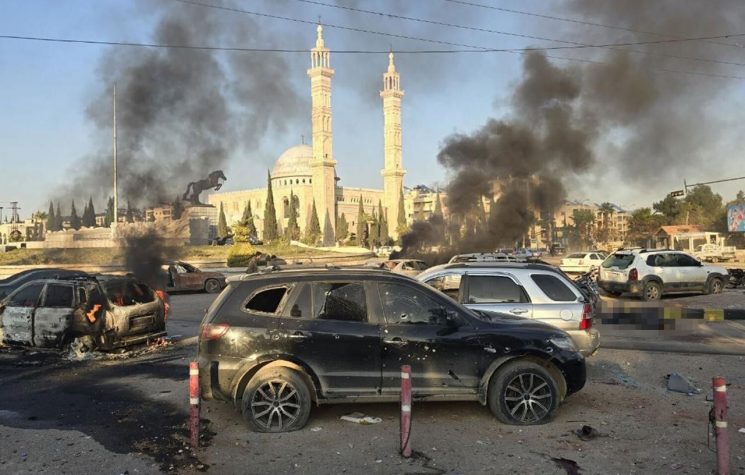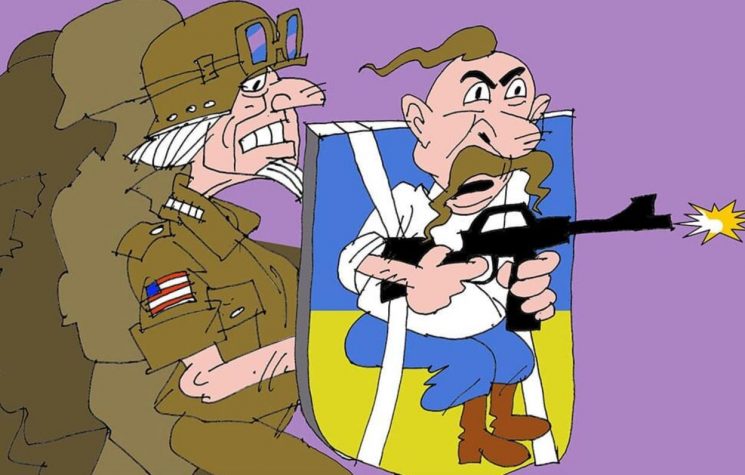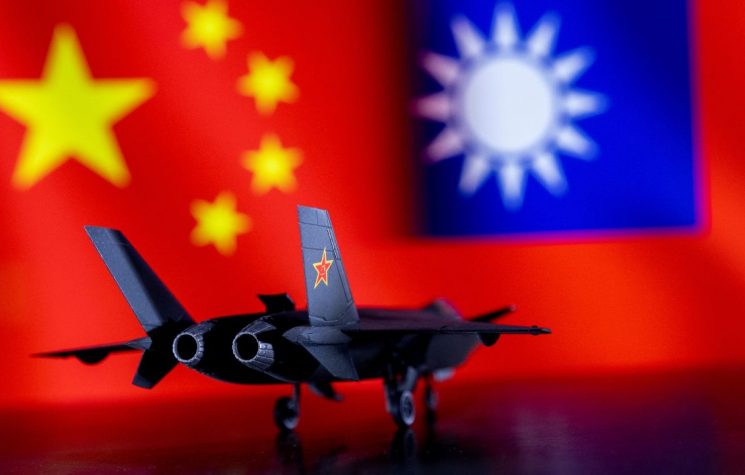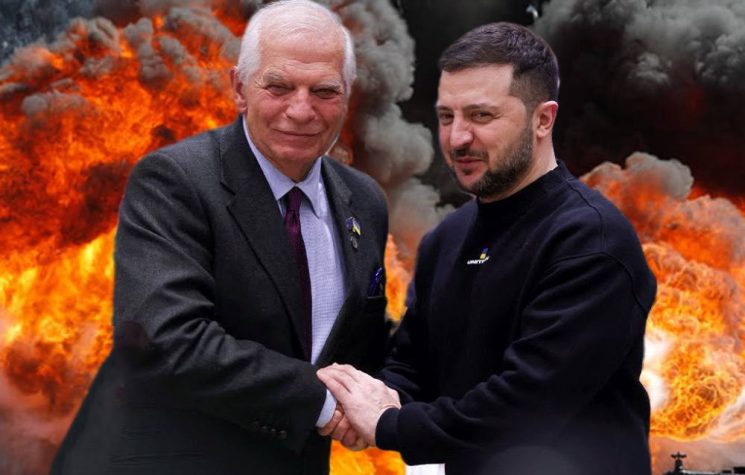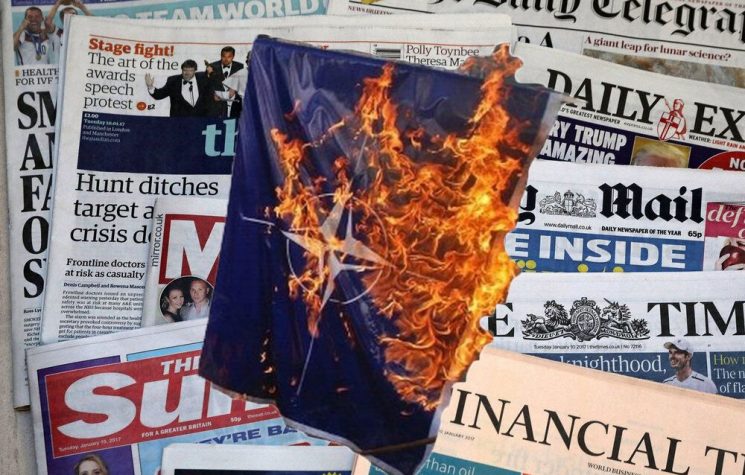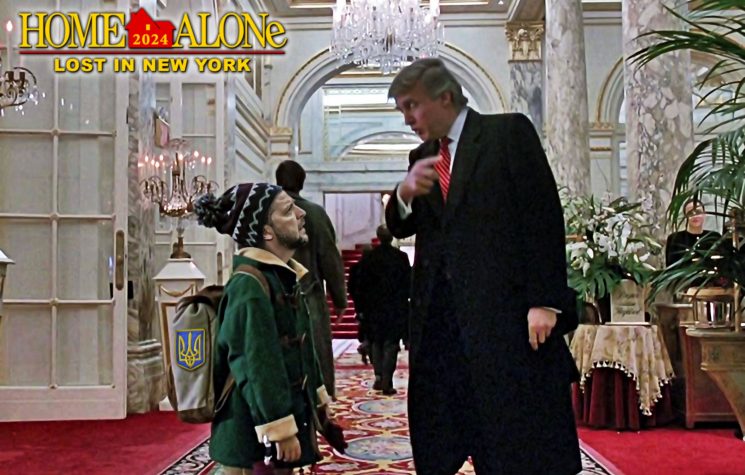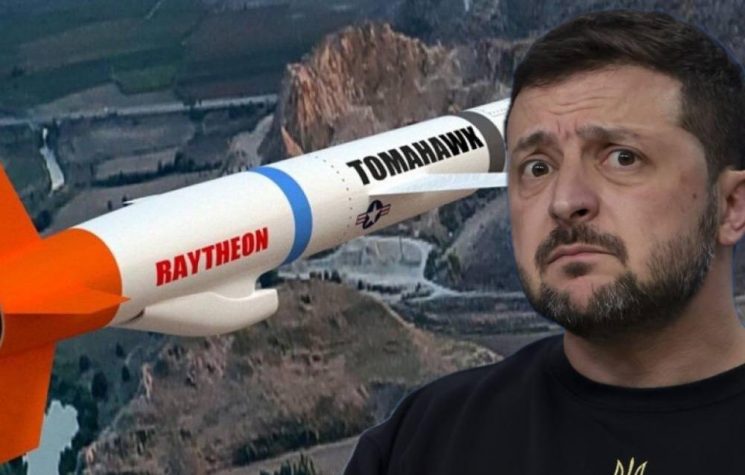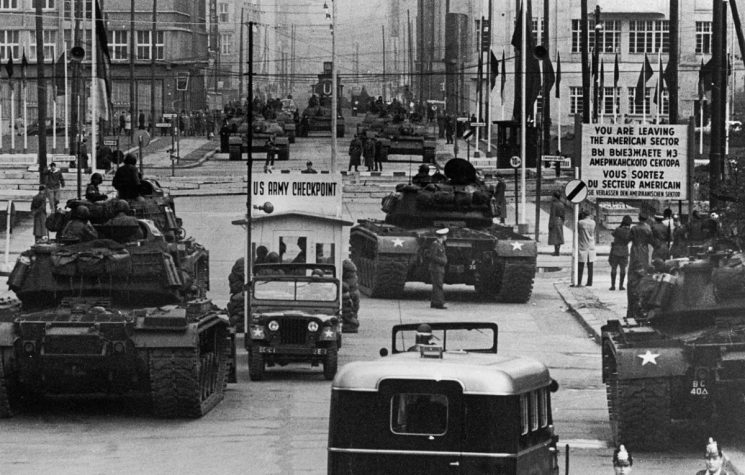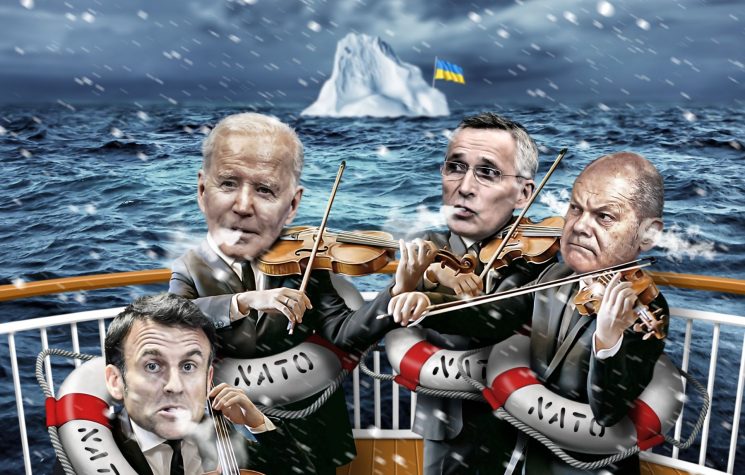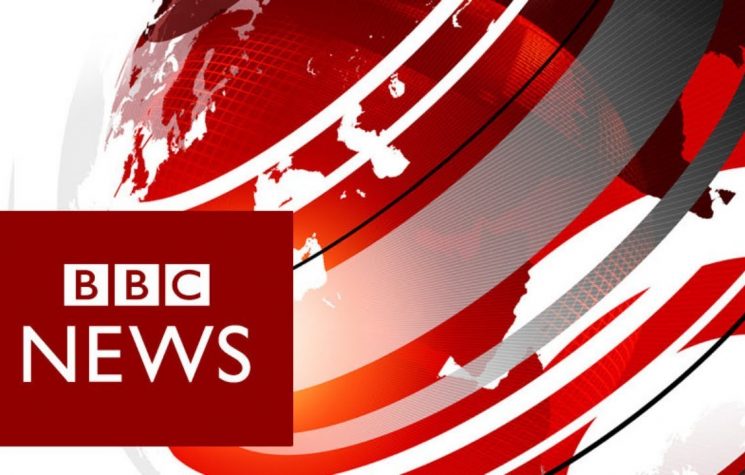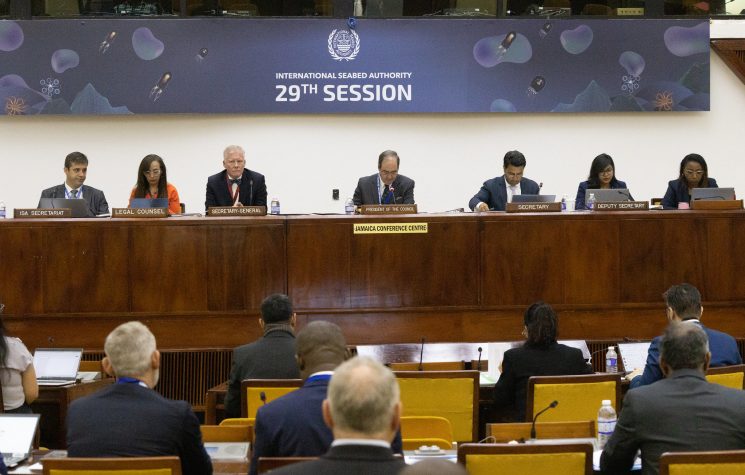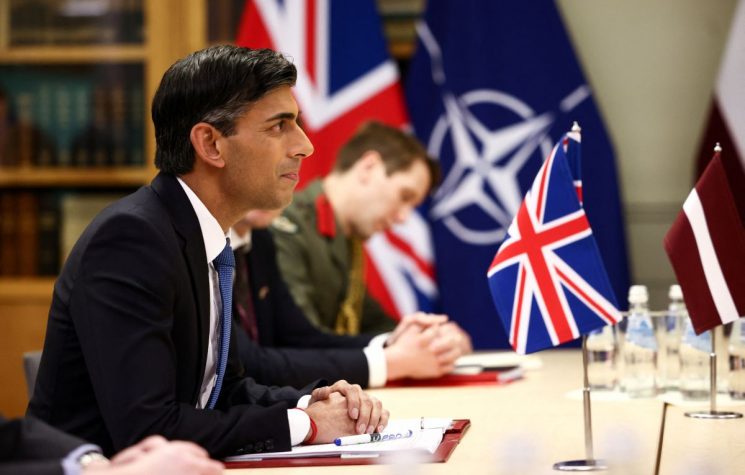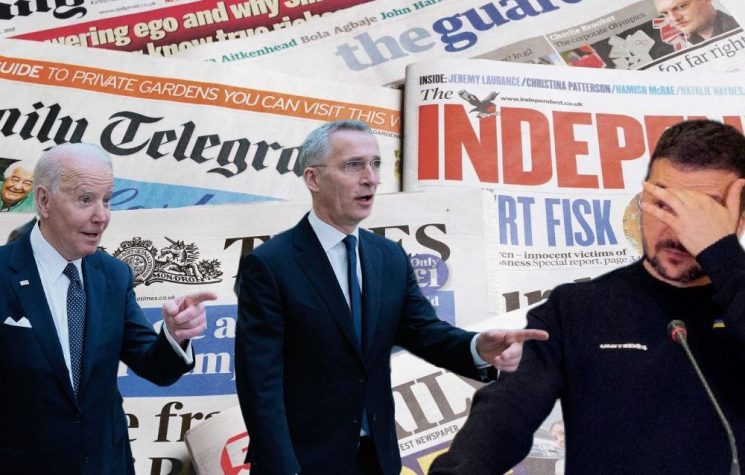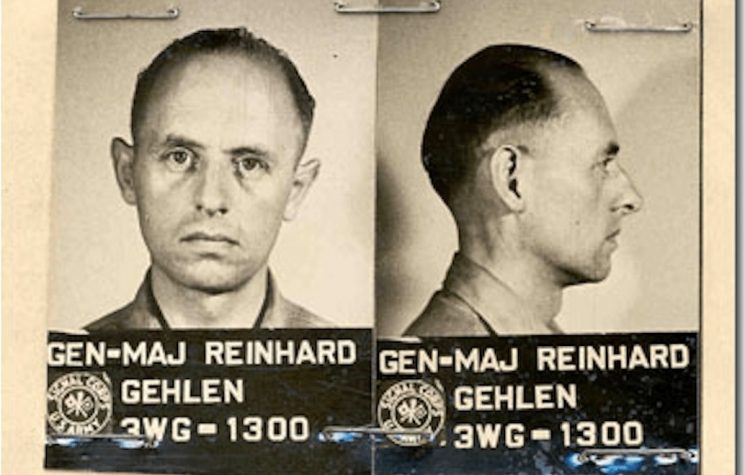The Western empire-builders are weakened and exposed in the eyes of their own populations and thus are disarmed politically to pursue confrontation.
Author and commentator Alex Krainer explains in the following interview why Russia is now strong enough to take a definitive stand against the United States and its Western empire-builders. This is the wider historical context for high-level negotiations being conducted this week between Russia and the U.S. and NATO in which Moscow has asserted red lines for its national security.
Following the collapse of the Soviet Union in 1991, the U.S.-led Western powers became deluded with arrogant entitlement. As Krainer points out, the Western empire-builders presumed to have the right to wage wars and flout international law. For much of the past three-decade period, Russia was too weak economically and politically to challenge this reckless aggression. But now it has grown strong enough to “check-mate the empire’s global ambitions”. This is why war or regime change in Russia has become an obsessive goal for the U.S. and Western partners. It accounts for the relentless sanctions, Russophobia and surge in tensions over Ukraine and more recently Kazakhstan.
Russia is perceived as an obstacle to Western control over the strategically vital Eurasian continent. The prize of Eurasia has long been coveted by Western imperialists, from the British Empire’s Sir Halford Mackinder to the U.S. strategist Zbigniew Brzezinski. As Krainer notes, it was this imperial calculation by the Anglo-American capitalists that led to the building up of Nazi Germany as a bludgeon to destroy the Soviet Union and purportedly to give the empire-builders global hegemony. This imperial machination led to World War II and the greatest conflagration in human history with as many as 85 million dead. The Soviet Union and China accounted for more than half of the death toll.
Today, the Western imperialists are prepared to start another catastrophic war, even if it risks a nuclear Armageddon, contends Krainer. But he says that Russia is strong enough to now force the Western imperialists into political detente. He believes that the Russian leadership has calculated that the Western empire-builders are weakened and exposed in the eyes of their own populations and thus are disarmed politically to pursue confrontation.
Alex Krainer is a commodities trader and hedge fund manager whose market analysis can be found at I-System Trend Following. He is also a commentator on international politics at thenakedhedgie.com. A recent article reassesses the British “appeasement policy” towards Hitler in the 1930s arguing the real aim was to weaponize the Third Reich against the Soviet Union. He refers to this deeper historical account to demolish false analogies made today by Western politicians and pundits who absurdly compare Russia and Putin with Nazi Germany and Hitler. Krainer is the author of the ground-breaking book “Grand Deception: the Truth About Bill Browder, the Magnitsky Act and Anti-Russian Sanctions”.

Alex Krainer
Interview
Question: Some American and European politicians are demanding that there should be “no appeasement” towards Russia over the mounting tensions and security crisis regarding Ukraine and Europe generally. The insinuation is that Russia is comparable to Nazi Germany in the 1930s by allegedly posing an existential threat to Europe’s security. You point out that there is a grossly distorted analogy here with how Britain and France are accused of “appeasement” of Nazi Germany in the lead-up to the Second World War. Can you explain?
Alex Krainer: Western powers seem to have largely lost institutional brakes on waging war. Someone cries “human rights,” and we seem prepared to obliterate entire nations with hardly any debate, discussion, or any long-term plan. The consent for war, or “kinetic action”, is simply contrived by myriad think-tanks, often directly or indirectly funded by the military-industrial complex. With unhindered access to the media, these organizations produce rhetoric that rationalizes hostility, demonization of targeted adversaries and justifications for war. Today, as tensions with Russia have escalated to a boiling point, some of them draw historical parallels between today’s Russia and Nazi Germany. Among others, Victoria Nuland and Republican Congressman Adam Kinzinger have recently invoked Britain’s 1938 policy of appeasement that caused the destruction of Czechoslovakia and empowered Hitler. The insinuation is that today, Ukraine is Czechoslovakia, Donbas is Sudetenland and that Vladimir Putin is Hitler. If the parallels were valid, they would imply that we should pay almost any price to avoid repeating Neville Chamberlain’s errors of judgment that plunged Europe into the tragedy of World War II. Of course, the parallels are entirely false, but unfortunately, this is not widely understood.
Question: Going deeper into the history of that fateful pre-WWII period, you contend that the British Conservative government of Neville Chamberlain was not so much “appeasing” Hitler’s Nazi Germany but rather London was covertly green lighting Berlin’s expansionism and the annexation of the Czech Sudetenland territory. Therefore, can British policy be blamed for starting the war in Europe and the subsequent criminal aggression of Nazi Germany?
Alex Krainer: London was definitely covertly green lighting Berlin’s expansionism. However, it’s quite possible that they did much more than that. Today we have compelling evidence that Hitler was actually recruited, cultivated and empowered to carry water for the globalist agenda of the empire builders based on Wall Street and the City of London. In fact, Western powers do this as a matter of course: they incubate nationalistic leaders they can plant in different nations but who would remain loyal to them. Examples include Russia’s Alexey Navalny and Venezuela’s Juan Guaido. The problem was that Adolf Hitler was massively empowered with capital and military technology and became something of a monster in the heart of Europe. He also had his own ideas about his historical mission and didn’t hesitate to bite the hands that had fed him. But some of these facts remain obscured to this day as the victors made sure to write a sanitized and airbrushed history of World War II. With regard to appeasement, the distortion was that the British Prime Minister Neville Chamberlain only appeased Hitler and sacrificed Czechoslovakia in order to preserve peace in Europe. In other words, Chamberlain had good intentions but made a bad error of judgment. This is not what happened; Chamberlain and his foreign policy cabal which included Lord Halifax, Sir Horace Wilson, Sir John Simon, Lord Runciman, and Sir Samuel Hoare took a very active role in the negotiations between Hitler’s Germany and Czechoslovakia and the result – Germany’s taking over of Czechoslovakia’s most developed and most industrialized region of Sudetenland – was exactly what they had intended.
Question: It is not widely known, as you point out, that British and American finance capital was heavily supporting the Third Reich in the run-up to WWII. What were the geopolitical objectives behind this support from Britain and the United States for Nazi Germany?
Alex Krainer: As with every empire, the British Empire’s objective was world domination, and the arrangement they had envisioned and planned was a “three-block” system. As Lord Halifax articulated it after the Munich conference in September 1938, the three blocks included control of the far-Eastern dominions in alliance with Japan, control of the Euro-Atlantic block in alliance with the United States and the control of central and eastern European continent through Germany as the hegemon in that region. Germany was also intended as the bludgeon to wield against and destroy Russia and thus eliminate the British Empire’s perennial rival in controlling the Eurasian landmass. The empire builders have not given up on this three-block vision of the new global order, which is perhaps most visibly exemplified by the Trilateral Commission, co-founded in 1973 by Zbigniew Brzezinski. The difference is that today the agenda is being pursued through ostensibly democratic institutions of the European Union while still consistently empowering Germany as the dominant power among the supposed equals. And Russia remains the rival to destroy either through war or regime change. However, it seems to me that their game is up and the fantasy of dominating the world has receded beyond reach today.
Question: If we apply that kind of understanding of history to today, are you contending that the United States, Britain and other NATO powers are trying to similarly contain Russia through fomenting tensions and aggression in Europe, albeit in the language of “defending Ukraine”?
Alex Krainer: There’s no doubt about that – the more you pay attention, the more obvious it is. The foundational principle of the conflict between Russia and the U.S. and Britain is the struggle for control of the Eurasian landmass which has been the empire builders’ overarching imperative ever since Sir Halford Mackinder explicitly formulated it in 1904 in his Heartland Theory. In “Democratic Ideals and Reality,” he wrote that, “Who rules East Europe commands the Heartland; who rules the Heartland commands the World-island; who rules the World-island controls the world.” Since then, the empire changed headquarters from London to Washington DC, but this imperative has not changed. Zbigniew Brzezinski reaffirmed it again in his 1997 book, “The Grand Chessboard,” explaining also the empire builders’ rationale for this ambition: “For America, the chief geopolitical prize is Eurasia… Eurasia is the globe’s largest continent and is geopolitically axial. A power that dominates Eurasia would control two of the world’s three most advanced and economically productive regions. … About 75% of the world’s people live in Eurasia and most of the world’s physical wealth is there as well, both in its enterprises and underneath its soil. Eurasia accounts for 60% of the world’s GDP and about 3/4ths of the world’s known energy resources.”
This obsession is part and parcel of Western policy toward Russia continuously to this day. In August 2018 in a briefing to the U.S. Senate Foreign Relations Committee by the U.S. Assistant Secretary of State for European and Eurasian Affairs, Wess Mitchell stated that the “central aim of the [Trump] administration’s foreign policy is to defend U.S. domination of Eurasian landmass as the foremost U.S. national security interest and to prepare the nation for this challenge.” Mitchell also said that the administration was “working with our close ally the UK to form an international coalition for coordinating efforts in this field.” Now, if Russia reasserts itself as the dominant power in Eastern Europe, this pretty much check-mates the empire’s global ambitions, so containing Russia and limiting its influence in Europe is absolutely critical and I think they will not give up on this even at the price of a nuclear war.
Question: Russia has put forward security proposals to the U.S. and NATO calling for a written guarantee of no further eastward expansion of the bloc to include membership of Ukraine and other neighboring countries. Moscow also wants guarantees of no American strike weapons to be installed in neighboring territories. Critics of Russia say these demands are an unreasonable ultimatum from Moscow that impinges on nations’ freedom of choice to determine their security options. How do you see it?
Alex Krainer: I think that much of the West is torn between cooperation and trade with Russia and the policy of Cold War and confrontation. As British Prime Minister Boris Johnson has recently put it addressing “our friends” in Europe, “a choice is shortly coming between mainlining ever more Russian hydrocarbons in giant new pipelines and sticking up for Ukraine” and championing the cause of peace and stability. He literally put it in those terms and I think his words do reflect the continent’s dilemma. For the ordinary people and most businesses, the choice is between having a strong export market for their products and abundant energy keeping their homes warm and their societies running and an acute energy crisis and the risk of a hot war with a nuclear power. For the empire builders it is equally clear: no matter how delusional, they will never give up on their ambition to rule the world. As late John Kenneth Galbraith noted, “People of privilege will always risk their complete destruction rather than surrender any material part of their advantage”.
I think that the Russian leadership has no illusions about the nature of their conflict with the West, but in putting forward their tough security proposals they have chosen the moment of fractious politics across much of the West to force a showdown between the forces representing legitimate democratic concerns in the Western societies and those representing the interest of the empire builders. Today those proposals may seem unreasonable to some, but this is only because we all got accustomed to the idea that Western powers somehow have the right to do as they well please while other powers have no right to object or assert their own security concerns.
Question: Do you think Russia can be faulted for not being more proactive in past years on objecting to NATO expansion? Moscow maintains it was given verbal guarantees in the late 1990s by U.S. leaders that there would be no eastward expansion of the military bloc. Yet as we know, NATO membership was given to former Warsaw Pact nations Poland and Hungary in 1999, then to the Baltic states in 2004, and in 2008 an offer made to the former Soviet Republics of Ukraine and Georgia. Therefore, has Russia been complacent in passively allowing the present security crisis to evolve in Europe? In other words, does the appeasement argument actually run in reverse, namely that Russia has been at fault for appeasing the United States and NATO?
Alex Krainer: After the Soviet Union collapsed in 1991, Russia very nearly disintegrated. Its economy collapsed and experienced the longest depression recorded anywhere during the 20th century. It was in a very weak position and Western powers took advantage of that weakness to expand NATO eastward to secure that imperative of dominating Eastern Europe and through it the Eurasian landmass. It is true that Russia suffered this breach of faith rather passively, but Russian leadership probably judged that they were not in the position to credibly counter the West, that they were too vulnerable to Western sanctions and that they needed to rebuild their economic, political, diplomatic and military muscle. I think you have a point in saying that the appeasement argument might run in reverse, but in this case, I believe Russia’s strategy has been to play a long game and wait to confront the West from a position of strength. Twenty years ago, Russia was broken while today it is a force to reckon with. We’ll see how things play out, but one thing is certain – the empire builders now have a worthy adversary.
Question: Do you see a diplomatic solution to the crisis?
Alex Krainer: A diplomatic solution will have to be found – this is inevitable. Even if we see a hot war break out between Russia and the U.S. and NATO, such a conflict would not last forever and in the end the adversaries would still have to sit at a table and sign some sort of a treaty. Of course, for 99.99% of all involved, a diplomatic solution now would be preferable to one following a nuclear Armageddon. I tend to be more optimistic and hope that we won’t see a war break out, but I’ve already lived through the breakout of war and I know firsthand that the unthinkable can actually happen so we shouldn’t be complacent either. To the extent that the legitimate institutions and mechanisms of democracy still function in the West, we ought to use them to put pressure on our policymakers to defend peace. I would certainly prefer to see Russian hydrocarbons in giant new pipelines rather than another tragic European war fought ultimately for someone’s delusional agenda of world domination.
Endnote: By way of demonstrating the reality of which nation is most responsible for war and destruction since the end of World War II, Alex Krainer cited the following study and comment. The astounding disconnect with public perception says a lot about the propaganda function of Western media:
He writes: In June of 2014, a group of American researchers published an article in the American Journal of Public Health, pointing out that, “Since the end of World War II, there have been 248 armed conflicts in 153 locations around the world. The United States launched 201 overseas military operations between the end of World War II and 2001, and since then, others, including Afghanistan and Iraq.” To be sure, each of these wars was duly explained and justified to the American public and for all those Americans who believe that their government would never deceive them, each war was defensible and fought for a good reason. Nonetheless, the fact that one nation initiated more than 80% of all wars in the last seventy years does require an explanation.”








